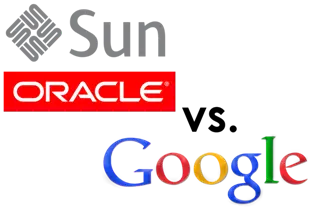
An email shown to the jury said that any mention of the "J word" was to be removed when Android was released in 2007.
Google, owner of the Android mobile device operating system, took another set of body blows from Oracle attorneys May 13 on Day 5 of the third Oracle v. Google copyright infringement trial in San Francisco.Under cross-examination by Oracle attorney Annette Hurst, Google Android engineer Daniel Borenstein was forced to acknowledge that he "scrubbed" references to Java from the original Android release, ostensibly to conceal the copied code from Sun Microsystems, which developed Java and was later acquired by Oracle in 2010.One email shown to the jury referred to Borenstein calling for any mention of the "J word" to be removed when Android was released in 2007, months after Apple had introduced the first iPhone. The list of words to be scrubbed also included "Oracle," "license" and "Sun," Oracle contended."I did in fact do some of the scrubbing myself," Borenstein told a 10-member federal court jury. $42 Billion in Revenue Since 2007 Google launched Android in November 2007, and the system has since generated some $42 billion in revenue -- at Oracle's expense, the database maker contends, because Google copied components from the Java programming license into Android without getting a license from Oracle to do it.Android is the most prevalent OS in the world, and Oracle believes it deserves a piece of profit from all that success. More than 3 billion devices globally currently use Android; 1 billion devices running Android shipped in 2014 alone. There are about 19,000 distinct devices that use the operating system.As a result, Oracle has been on a seven-year legal mission to reclaim damages -- in the realm of $9.3 billion -- it believes it is owed by Google.Google contends that it used Java APIs (application programming interfaces) in a "fair use" manner, according to open source software licensing rules. "Fair use" requires the developer to contribute back to the open source community new components that others could also utilize in future software development. Most commercial use of open source software requires a GNU General Public license.In a brief testimony via video on May 13, Oracle co-founder and CTO Larry Ellison underscored Oracle's position that Google established itself in the smartphone market in 2008 and 2009 by relying on copied Java technology for its Android operating system.**Did Google Cut Corners?**Oracle's copyright infringement case against Google rests on evidence that Google was able to swiftly move into the competitive smartphone market during that time frame by cutting corners and copying core Java technology into Android, earning the company billions of dollars in revenue.Simon Phipps, former chief open source officer for Sun who testified for Google, said under questioning from Oracle attorney Lisa Simpson that he was unaware of any evidence Google could use open source Java in the development of Android.Phipps was pressed about the fact that Sun licensed its core Java technology for commercial use. "Can you identify any commercial entities' use of open-source Java APIs without a license (between 2005 and 2007) from Sun?" asked Simpson, also an Orrick partner."No I can't," Phipps replied.Joshua Bloch, a key Java architect in Android and another Google witness, also faced rough questions on the stand. He was shown an email in which he responded to questions about using the Java technology in Android by writing: "Ooh, you've put your hand into the buzzsaw."Oracle originally sued Google in 2010 for using 37 Java application programming interfaces (APIs) in its Android mobile operating system without first obtaining a license for the technology from Oracle. At the time, Oracle sought $1 billion in damages from Google."It copied thousands of lines of Oracle's computer code as well as the structure, sequence, and organization of the 37 Java API packages into Android," Oracle lawyers wrote in a trial brief.The trial resumes May 16 with Borenstein returning to the witness stand.
- eWeek